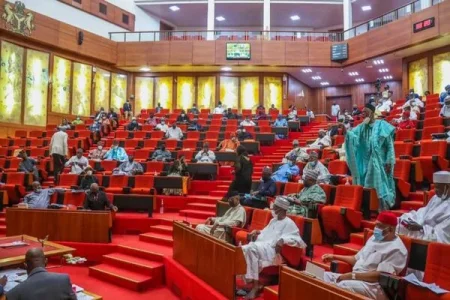
The Nigerian Senate has advanced a bill banning open grazing to prevent farmer-herder conflicts, advocating for ranching instead. Proposed by Senator Titus Zam, the bill also calls for a national summit and public hearing. It now awaits review by the Senate Committee on Agriculture and related sectors.
On Wednesday, the Nigerian Senate witnessed a lively debate as a bill aimed at banning open grazing and establishing ranches passed its second reading. This bill is seen as a measure to curb the violent clashes between sedentary farmers and nomadic herders, a persistent issue in the country.
Senator Titus Zam, representing Benue North-West, introduced the motion for the bill. He argued that the crises between farmers and herders could be effectively addressed through legislation prohibiting open grazing. Senator Zam emphasized the need to adopt modern animal husbandry practices, proposing ranching as a safer and healthier alternative for both cattle and herders.
"The bill advocates for transitioning from traditional livestock-keeping methods to modern methods which are safer and healthier for both the herds and the herders," Zam stated. He also noted that ranches should be established in pastoralists' states of origin and not imposed on states or communities without pastoralist populations. Furthermore, the bill requires that those interested in livestock farming must seek approval from their host communities to ensure peaceful coexistence.
One contentious aspect of the bill was the proposal to establish ranches in pastoralist states without mandating it in other regions. Despite some opposition, including from Deputy Senate President Barau Jibrin, the bill received majority support during a voice vote.
The Senate also proposed a national summit and a public hearing to seek comprehensive solutions. The bill has been referred to the Senate Committee on Agriculture, Trade, and Investment, and Legal Services, which is expected to report back within a month. This legislative move aims to balance traditional practices with modern governance to foster peace and security in Nigeria's agricultural sector.
4o




